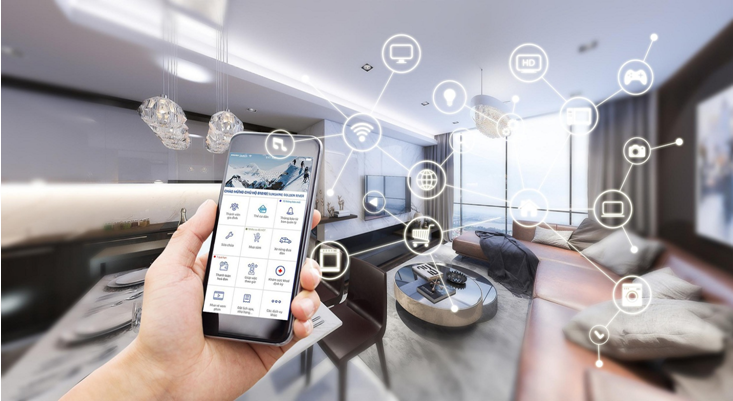Smart door lock is a device that can lock and unlock a door using advanced technology, such as a smartphone, keypad, fingerprint, or voice recognition. Smart door lock offers many benefits, such as convenience, security, and remote access. However, it also has some drawbacks, such as high cost, battery dependency, and hacking risk. In this article, we will discuss the advantages and disadvantages of smart door locks in more detail.
Advantages of Smart Door Locks
Smart door locks have the following advantages:
Convenience
The convenience of smart door locks lies in allowing remote access through a smartphone or tablet. This feature is particularly handy for individuals who frequently forget their keys as it provides a smooth solution without the need for physical keys.
The ability to manage remote access is even more convenient as it enables homeowners to grant temporary access without sharing physical keys. However, users should be mindful of security factors, especially when using mobile devices, and implement safety measures such as two-factor authentication to minimize potential risks.
Security
Smart door locks excel in security compared to traditional locks. Their programmability allows precise control, permitting only authorized users to unlock the door. This not only minimizes the risk of unauthorized intrusion but also establishes a secure and controlled access system.
However, it’s important to note that the effectiveness of these advanced security features depends on configuration, regular updates, and user adherence to best security practices. Caution in password management and other security measures is crucial to optimize the security benefits that smart door locks provide.
Smart door lock’s programmability allows precise control, permitting only authorized users to unlock the door
Integration with other smart home devices
By installing a smart home electrical system (lắp đặt hệ thống điện nhà thông minh), smart door locks can integrate with other smart devices such as lights and cameras to create a safer and more automated smart home environment. You can set up scenarios for your home. As a result, your life will be more comfortable.

By installing a smart home electrical system smart door locks can integrate with other smart devices
Peace of mind
Smart door locks bring homeowners peace of mind by allowing remote status checks, enabling them to confirm the door’s security from anywhere. Additionally, the system sends alerts for unlocked doors or tampering, ensuring a proactive response to potential security concerns. This feature-rich convenience enhances overall peace of mind, knowing that the home is secure and any issues will be swiftly addressed.
Accessibility
Smart door lock allows you to access your home without using a physical key, which can be lost, stolen, or forgotten. Smart door locks can be controlled remotely using a smartphone app, which can be particularly convenient for people with disabilities or mobility issues. For example, you can learn how to use a smart plug (cách sử dụng ổ cắm điện thông minh) and then connect it to your smart door lock, so that when you unlock your door, the smart plug will turn on the lights, fan, or other appliances that are plugged into it. This way, you can enjoy a more convenient and comfortable living experience.
Disadvantages of Smart Door Locks
Despite having numerous advantages, users should take note of the following drawbacks:
Cost
Smart door locks often come with a higher price tag compared to traditional locks. The investment in this technology needs to be weighed against the perceived benefits, considering factors like convenience and security.
Vulnerability to hacking
The vulnerability to hacking poses a significant concern for smart door locks, especially if not adequately secured. Implementing robust security measures, regular updates, and utilizing encryption technologies are crucial to mitigate potential risks and enhance overall system security.
Reliance on technology
The reliance on technology for smart door locks introduces a vulnerability in the event of a power outage or technical malfunction. Homeowners should be aware of this dependence and consider backup power solutions or alternative means of entry in case of such scenarios.
Privacy concerns
The collection of data by smart door locks regarding the comings and goings in a home raises valid privacy concerns. Users should be cautious about how this data is handled, stored, and whether it is shared with third parties, emphasizing the importance of transparent privacy policies.

The collection of data by smart door locks regarding the comings and goings in a home raises valid privacy concerns
Read Also: The Standing Desk Experience
Complexity
Smart door locks, due to their advanced features, can be more complex to install and use compared to traditional locks. Users may need to familiarize themselves with the technology and possibly seek professional installation, impacting the overall user experience.
In conclusion, while smart door locks offer advantages, it is crucial for users to carefully consider and balance these against the potential disadvantages such as cost, security vulnerabilities, technology reliance, privacy issues, and complexity. Each homeowner’s priorities and preferences will play a significant role in determining whether the adoption of smart door locks aligns with their needs.


